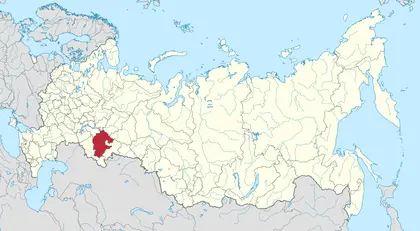Fifty years ago, Estonians protested against the environmental destruction of their republic by the Soviet government, an action that within a decade led to the formation of a powerful national movement that led to the recovery of Estonian independence and the destruction of the USSR.
Last month, four years after organizing to protect the environment of their republic from devastation by Moscow, thousands in the Middle Volga republic of Bashkortostan took to the streets to protest against the conviction on trumped-up charges of one of that nation’s leading environmentalists and then to demand the ouster of the Moscow-imposed head of their republic government and independence from the Russian Federation. The crackdown has intensified this week following the jailing of Bashkir activist Fayil Alsynov as ongoing protests signal more upheaval in the Muslim Turkic republic of Bashkortostan.
JOIN US ON TELEGRAM
Follow our coverage of the war on the @Kyivpost_official.
As with Estonia a half-century ago, few in the West have been paying attention to what is happening in Bashkortostan, given that this Turkic Muslim republic is located deep within the Russian Federation, that Russian police moved quickly to suppress the protests and that there is no equivalent Bashkir equivalent to the Estonian diaspora or American non-recognition policy to ensure that there is at least some media and government attention.
But that is a profound mistake because there is a good chance that Bashkortostan, a place most people and many governments in the West have never heard of, is on its way to becoming for Putin’s Russia what Estonia was for the Soviet Union, the place which triggered the demise of communism there and the disintegration of the USSR.

Direct Line with Vladimir Putin: Open Questions
Similarly, unrest in Bashkortostan could spell the end of Putin’s Russia, and US policymakers should be taking an active role in monitoring developments there for six compelling reasons:
- First and perhaps most important, Bashkirs are following the Estonians in building a national movement out of what began as an environmental one. Those who go into the streets to demand that their land be protected quickly become a form demanding that their nation be independent and protected as well.
- Second, repression 50 years ago and repression now may buy Moscow a little time but doesn’t solve its problems. Instead, it drives nationalism underground and makes it more radical. That happened in Estonia: It is happening in Bashkortostan again with the police restoring a kind of ersatz order that won’t last.
- Third, while Bashkortostan is located within the Russian Federation rather than at the edge of the Soviet empire as Estonia was, the Bashkirs have a similar advantage. They believe that they can reclaim the Orenburg corridor, a narrow strip of Russian territory between Bashkortostan and Kazakhstan, something that would allow not only Bashkortostan but all of the peoples of the Middle Volga region to get out from under Russia’s control.
- Fourth, Bashkortostan sits on the transportation and communications routes linking Moscow with Siberia and the Russian Far East. If its national movement takes off, that will make it far more likely that the peoples to the East of the Urals will be able to achieve independence as well.
- Fifth, Bashkortostan is also home to Russia’s version of Cheyenne Mountain. Known as Yamantau is the location of a highly secret facility Russian nuclear command and control apparatus for Kremlin leaders to flee to in the event of a nuclear conflict with the West. Retaining it is something Moscow might seriously fight to retain in the event of civil unrest there which could spill over into the other neighboring Russian Muslim republic of Tatarstan, or even create instability in northern Kazakhstan threatening Central Asia.
- And sixth, Bashkortostan is a multi-national republic in which the Bashkirs, a Muslim Turkic people, form only a third of the population but set the weather there along with the Tatars, who together outnumber the ethnic Russians. As a result, and again like Estonia a half-century ago, the Bashkir movement is already multi-national, and that makes it a model for other nations and one likely to energize them.
As Putin certainly remembers but as many in the West appear to have forgotten, it was the national movement in Estonia and related national movements in neighboring Latvia and Lithuania which paved the way to the destruction of the Soviet empire..They didn’t succeed immediately but each new protest advanced their cause, just as it will Bashkortostan’s and the other non-Russians in the Muscovite empire. And as he certainly fears given how his police forcefully responded to the Bashkortostan protests, something similar could happen to his empire now.
At the very least, the West should be paying attention – and even better provide encouragement to the Bashkirs not only because of their unquestioned right to national self-determination but also because creating such a threat within Putin’s empire is perhaps the best way to defeat him in Ukraine and elsewhere.
The views expressed are the author’s and not necessarily those of Kyiv Post.
You can also highlight the text and press Ctrl + Enter






